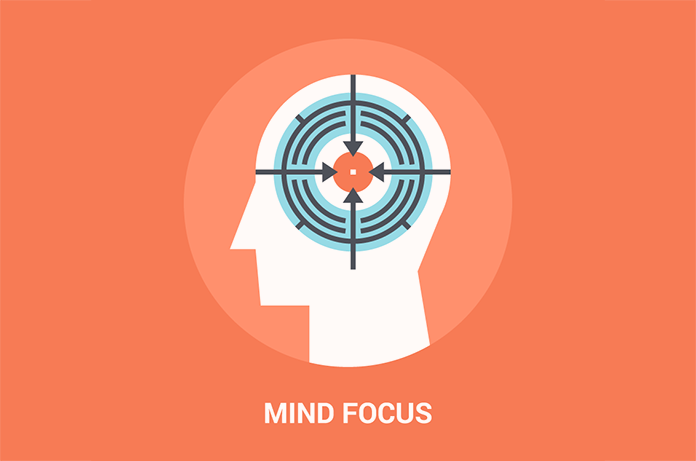What have the rotation of the earth, your genetics and birds got to do with focusing? We’re glad you asked! Today we take the long (and detailed) path in a bid to understand why we lose focus and how we can keep it once it’s been obtained.
Focus: Why Do We Lose It?
Our genetic makeup is based around a few critical components, which include the heat of our planet, the composition of the air we breathe and, most importantly (for this article at least), the hours of sunlight we have in a day. Our entire evolution has been formed around having a 24 hour day; it guided the fish-like creatures out of the sea 160 million years ago, and it now controls our internal body clock for everything from digestion to the release of melatonin (aka the body’s natural chamomile). Four billion years of evolution has resulted in humans having a rather refined circadian rhythm; herein lies the key to unlocking our true focus potential.
Circadian rhythm is the phrase we use to describe the biological processes that recur naturally in the human body every 24 hours (regardless of light). Studies have found that bodily functions slowly build up to a peak through the day – the internal body temperature gauge slowly rises from waking until the late evening, when it drops off the edge ready for sleep. The temperature change has impacts on many of the body’s function, including brain function, and hotter body temperatures mean quicker chemical reactions – kind of like overclocking your brain. However, there is an upper limit to the body temperature (which explains why it’s hard to keep on track in those sultry summer months). When the heat rises too much, the brain starts dedicating its resources to making sure the body stays cool.
Another variable of focus is, unfortunately, hardwired into our DNA. Our genetic chronotype largely dictates if we’re better in the morning, afternoon or evening (here’s our early bird or night owl analogy). Likewise, age can have a significant impact; remember being an annoyingly early riser when you were young? Perhaps you remember sleeping late and waking late in your late teens? Both are genetically normal, meaning there’s not much you can do about it, but there are some ways to use nature to our advantage.
Train Your Body
“Survival depends on being able to focus on what’s important.”
Historically, deciding on a focus was relatively easy – often it revolved around eating or not being eaten. Since we’ve mastered agriculture and the food supply network (and not being hunted by apex predators), our focus has shifted. In fact, many of us are not particularly good at finding a focus in this modern age of convenience.
Therefore, finding your focus is our first tip, and we can look at this in terms of hours, days, weeks, or even months and years. A secondary benefit will be our ability to plan and to give someone a firm ‘no’ when they ask for an activity that does not fall into that day’s focus agenda. Planning your focus may need some technical implementations, like allotting a specific time for checking emails and switching off your workplace instant messaging service, but you’re sure to see the benefits of not flitting between tasks.
Keep It Tepid
Remember how we mentioned heat? Keeping your body temperature within a reasonable range for productivity and focus depends on external factors. According to a study, Room Temperature and Productivity in Office Work, if you can keep the external temperature between 20-25 degree Celsius, then focusing will be significantly easier. Your body won’t have to worry about shivering to keep you alive, or sweating to… also keep you alive.
Sprint Bursts
An interesting study found that short bursts of high-intensity training were just as effective as long cardio sessions; why do we mention this? The brain appears to work in a very similar manner. Short bursts of high-intensity focus produce better work than if one sits for long periods and engages with a single task. The study highlighting the finding cited sensory perception as another example – “the brain gradually stops registering a sight, sound or feeling if that stimulus remains constant over time.” Essentially, if the meaningfulness of an activity is lost, our brain looks for meaning elsewhere. When focus starts to wane, get up out of the chair and let your focus fall on something else until you’re ready to get back to the original topic.
Do you have any tips for maintaining focus and concentration at work or during your study time? Be sure to post them in the comments below!
For education news, study tips and more, be sure to sign up for the Aspiring Accountants newsletter and get articles delivered directly to your inbox.



















